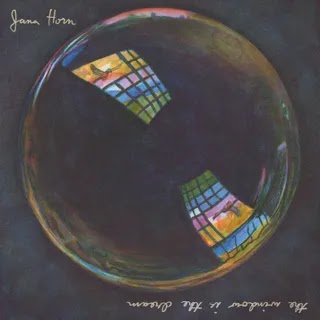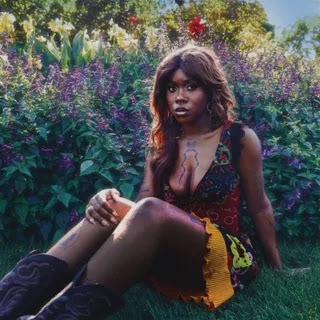The UK’s Trees were not scholarly devotees of the folk tradition but enthusiastic recent converts who brazenly experimented with traditional forms and never missed the opportunity to jam.
Some new sounds emerge gradually, as like-minded artists circle similar ideas over time. Others arrive with the bang of one great record. British folk rock, a misty and elusive thing, almost entirely distinct from its jangly West Coast American counterpart, belongs mostly to the latter category.
In the late 1960s, Fairport Convention, a talented young London band enamored of Bob Dylan and the Byrds, recruited Sandy Denny, an amber-voiced troubadour in the city’s folk revival scene, as their new singer. Denny brought to the band a deep interest in the traditional songbook of the British Isles, and in 1969, they recorded a stunning 11-minute version of the 18th-century ballad “A Sailor’s Life,” setting its lyrics about doomed lovers to electric instrumentation that churned like a gathering storm. This recording is widely seen as the first to render traditional English folk song in the rhythmic and timbral vocabulary of rock. Along with Liege & Lief, a Fairport Convention album released later that year, “A Sailor’s Life” inspired interest in folk history among a generation of English rock bands who found that the canon’s archetypal tales of blood and magic resonated anew amid the hippieish mysticism of their early-1970s era.
Trees were one such band. Like Fairport Convention, they performed mostly electrified renditions of traditional songs, peppered with a few originals in the same idiom, which untrained listeners would have trouble distinguishing from the genuine article. In Celia Humphris, they had a singer, like Denny, whose ethereal presence seemed like an extension of the ancient characters she inhabited and addressed in song. In Barry Clarke, they had a lead guitarist who was plainly influenced by the articulately lacerating style of Fairport’s Richard Thompson. He is not shy about admitting it. “There’s no doubt Richard Thompson [led] all of us down the path of the English lead guitar style,” Clarke is quoted as saying in the liner notes to Trees (50th Anniversary Edition), an excellent box set from Earth Recordings that compiles the band’s brief recorded legacy, amounting to two studio albums released in 1970-71, a short BBC session bootleg, and a handful of demos and alternate mixes.
Trees may have appeared in Fairport’s wake and quickly flamed out, but their music is well worth appreciating on its own. At their best, they seemed to grasp at something just beyond themselves, beyond even their forebears. Clarke’s acknowledgement of Thompson’s influence comes with an important caveat: “He showed us the ways and means… but in truth the understanding we all shared was simply to get in the car and put our foot down! We were nothing if not instinctive.” The members of Trees were not scholarly devotees of the folk tradition but enthusiastic recent converts whose appreciation of the old songs came pre-filtered through modern interpreters. Their dilettantism was no hindrance; it freed them from the burden of reverence to traditional forms, which they mixed brazenly with open-ended instrumental passages and hard-rocking riffs. Fairport’s classic lineup, after the epic journey of “A Sailor’s Life,” tended to unleash its improvisational power only at carefully chosen moments; Trees, on the other hand, never missed an opportunity to jam.
The Garden of Jane Delawney, Trees’ debut, and On the Shore, their final album, arrived within nine months of each other. The band itself didn’t last much longer than that. The two albums have long been cult items among a certain sort of listener, for whom stumbling on Trees for the first time may feel like wish fulfillment from an alternate universe. What if Fairport Convention went fully psychedelic? Or the Grateful Dead formed in Norfolk instead of the Bay Area, and put their cosmic touch on the Child Ballads instead of American bluegrass and R&B? In highlights like “She Moved Thro’ the Fair,” from Jane Delawney, and “Sally Free and Easy,” from On the Shore, Trees achieve communal interplay on par with the Dead’s, using the songs’ simple modal melodies as scaffolding for elaborate spontaneous compositions in which no one voice holds the lead for too long. Bias Boshell, primary writer of Trees’ few original songs, is the rare rock bassist whose style seems to follow Phil Lesh’s. Rather than adhering to any recognizable pocket, he fills the low end with circuitous melodies, lending the music a feeling of unsettled searching in even its heaviest moments.
The Garden of Jane Delawney has a ramshackle charm that anticipates indie-minded psych bands from the 1990s onward. (After listening, you may wonder whether Woods chose their name as a subtle homage.) “Nothing Special,” the opening track, consists of little more than a simple two-bar ascending pattern from one guitar and near-constant soloing from the other. “Snail’s Lament,” the tender closer, features harmonized male and female vocals pledging humble mutual devotion: “Live another life on me/When you find it hard to cope/Take my eyes if you can’t see/Give them back when you find hope.” Its sweetness is undiluted, and maybe even heightened, when the two voices fall occasionally out of alignment, or Humphris reaches for a high note and just misses it in the final chorus. “The Garden of Jane Delawney” is eerie and emotionally complex, its surreal stillness suggesting the aftermath of a murder by the titular character without ever directly acknowledging her crime. Boshell has said that he wrote it in a kind of trance and he’s still unsure of the story he was trying to tell with the lyrics. The song’s haunted atmosphere is so convincing, you almost want to believe him.
Despite its status as the title track of Trees’ debut, the darkly sophisticated “The Garden of Jane Delawney” is more aligned with the sensibility of their second album, as the band’s founder and acoustic guitarist David Costa points out in the liner notes. On the Shore is more confidently rendered than Jane Delawney, and more like a fog borne on heavy wind than a ray of sunshine. At several points the album seems to pick up directly where Fairport Convention left off with “A Sailor’s Life,” a richly ambiguous vein of improvisation that neither group explored much further—Fairport because they moved on to other concerns, Trees because they’d effectively broken up by 1971.
On the Shore’s take on “Geordie,” a folk song about an honorable man who has been condemned to death, is steadfastly minimal, with Humphris’ laments swirling in the negative space between tumbling bass and swells of guitar. Gnarls Barkley sampled the song on the title track of their 2006 smash album St. Elsewhere, prompting Costa to reflect on what his band shared in common with Danger Mouse and Cee-Lo Green. “We never engaged in any heavy dialogue about the authenticity of the tradition,” Costa admitted in the liner notes to a 2007 reissue of On the Shore. “We were only sampling, too. I’m not a great folk musician. What I loved was those aberrations and accidents, and the weird things that could happen when the tradition was really alive and subject to all and any other influences.”
Costa is remarkably clear-eyed about what Trees embody for contemporary listeners. Like the makers of many other great “lost” albums, they leave something more than a historical footnote but less than a major legacy, with a mystique that draws some of its power from the fact that they simply didn’t produce very much work. “Part of what people love about Trees is that as a band you were in, and out, and then gone,” the guitarist says in the box set liner notes, paraphrasing a remark his son once made. Fifty years on from their beginnings as psychedelic rockers running amok through the English folk tradition, they have themselves passed into history and become fodder for younger musicians and record collectors who are as excited as they were by the prospect of finding something new in dusty old sounds.
In 2018, a decade after the death of drummer Unwin Brown, Costa and Boshell gathered some of these younger musicians and performed a concert of songs from Trees’ repertoire as the On the Shore Band. A few recordings from this show are included along with the ’70s material in the box set. They sound spirited and alive, if a bit slick compared to the original, updating the sprawling Trees sound with additional instrumentation and occasional electronic textures that would have been difficult for a rock band to employ in their time. The COVID-19 pandemic stifled plans for a further reunion, according to the liner notes. Then, in mid-January, Celia Ford Drummond, née Humphris, died of undisclosed causes, having lived just long enough to witness this latest loving tribute to the band she fronted for a few years as a young woman. For better or worse, Trees may remain forever an aberration, the way David Costa’s son described them: in, out, then gone.
















0 comments:
Post a Comment